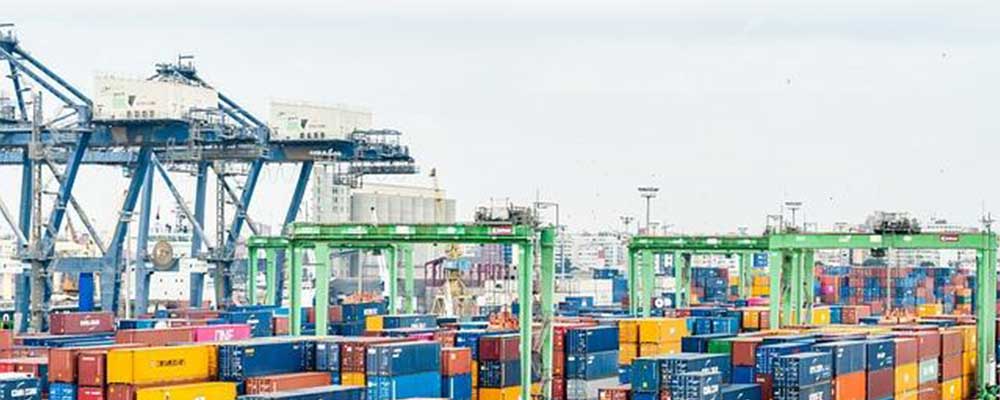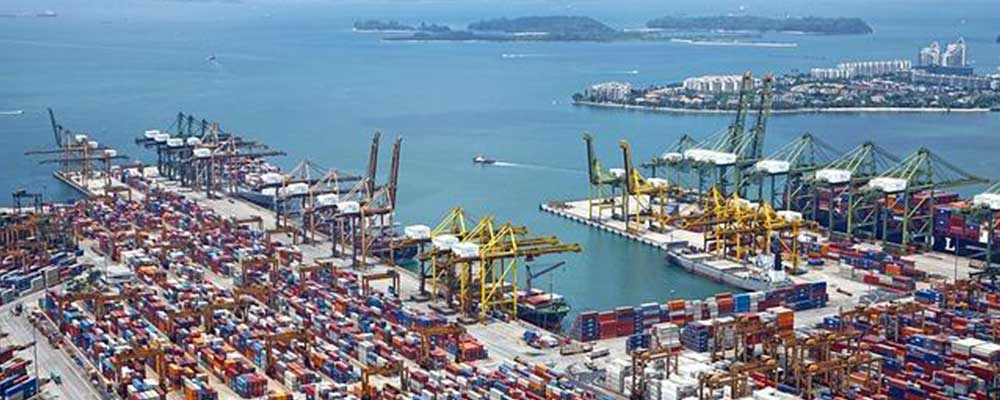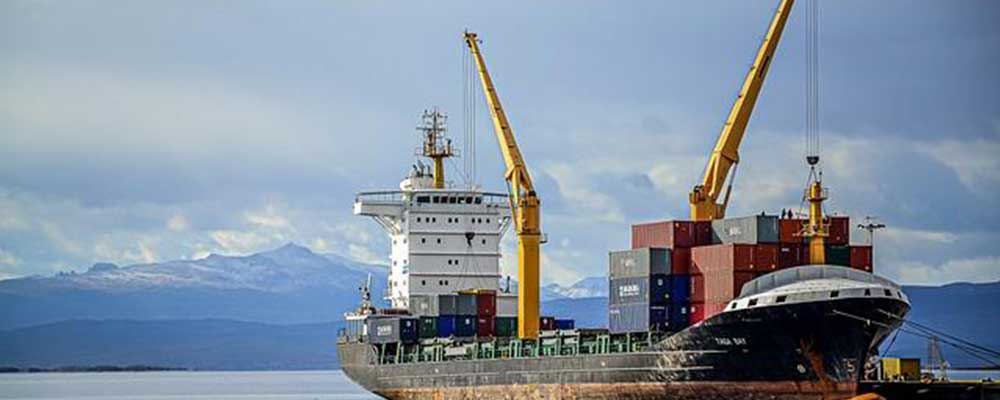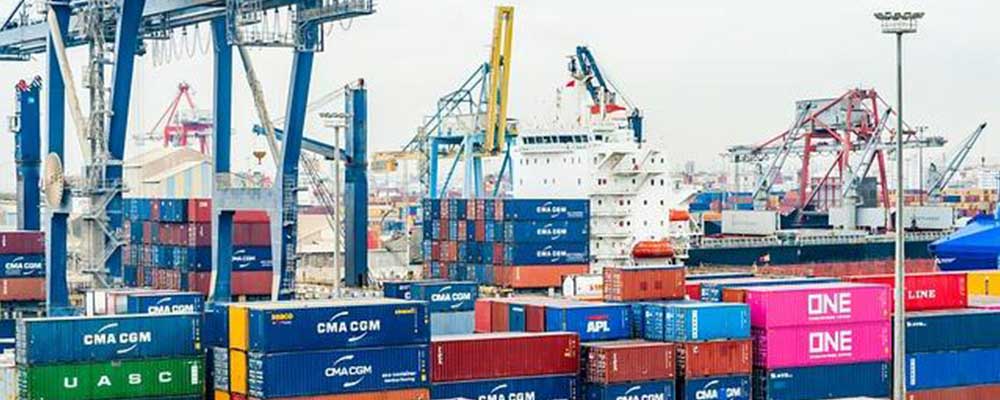At Luckystar, we understand the importance of protecting your cargo during transit. That’s why we offer comprehensive freight insurance to safeguard your shipment and give you peace of mind.
Our insurance coverage is designed to protect your goods against damage, loss or theft during transport, giving you the assurance that your investment is safe and secure. With our freight insurance, you can enjoy complete coverage at competitive rates, and our experienced team will work with you to tailor a policy that meets your specific needs.
Whether you are shipping domestically or internationally, our insurance coverage is designed to protect your cargo every step of the way.
Contact us today for a quote and let us help you secure your shipment.
Table of Contents
More attention should be paid to insurance issues should be discussed in the freight industry because they play a significant role. While insurance is a necessity to cover against risks, most companies move their cargo daily while uninsured. The hesitance to get cargo insurance covered during freights is because no legislation or regulations make it an absolute necessity. Though failing to get insurance coverage can save you money, it’ll cost you more in the event of an accident.
Importers should consider getting insurance coverage for their cargo containers to protect themselves against risks during freights. This will also protect them from forwarders refusing to accept their cargo in fear of taking on the liabilities of uninsured cargo. Thus freight insurance can protect an importer from eventual financial losses.
While the primary concern is that freight insurance costs are usually high, you might be surprised to realize that it’s cost-efficient. This is partly because freight insurance is often a percentage of the total value of the goods in a freight.
Nonetheless, this cost can change because it’s based on a case-to-case basis depending on different factors. Therefore, freight insurance costs can be quite affordable based on your needs and cargo.
Freight Insurance
Most carriers offer a standard insurance cover for their clients; however, freight insurance is meant to provide extra protection. This is because cargo insurance extends from transporting goods by sea or road and can be bought from the carrier or third-party insurance company.

Ideally, if a shipper has freight insurance, they can be compensated for any loss or damage during transport. However, if a shipper has no freight insurance, they’ll have to bear all costs from cargo loss or damage.
As a shipper, you can reduce the damage costs if you can prove that the carrier was at fault, though the legal process can be time-consuming and costly. Moreover, the process can be even more complicated if you’re involved in an international shipment.
Freight insurance can also be handy if the carrier’s liability is limited. Events that are naturally out of the control of a carrier, such as natural calamities, acts of God, flooding, hurricanes, and earthquakes, are usually excluded from their liability. However, freight insurance can offer coverage that extends to such events. You can use the compensation to recover the cargo lost during any natural calamity or act of God.
In addition, freight insurance can come in handy against common losses during transportation such as pirate attacks or highway bandits. This means you can claim against the insurance company directly in case of losses instead of the shipper. This makes getting compensation easier than engaging in long court processes.
Other aspects that it’d be best to consider when getting freight insurance are specifying the nature of the cargo, what you wish to protect the cargo from, and the insurance period. It’s best to insure the shipment from loading to unloading the carriage.
Sometimes, getting basic insurance for your cargo might not be enough because it only covers the civil liability of the forwarder and carrier liability which might not be enough. This is because basic insurance only covers damage caused by the negligence of the forwarder or the carrier.
Standard For Freight Insurance Cost
There’s no standard freight insurance cost because the value of each cost differs. In addition, the mode of transportation also plays a crucial role in the price of insuring cargo. Moreover, other factors such as general liability, type of cargo, freight classification, and loss and damage history contribute to freight insurance costs.
For example, if the cargo consists of expensive goods and the shipper has a damage and loss history, then the insurance cost would be high. This generally means estimating the standard freight insurance cost can take much work.
Cost Of Insurance
Let’s start by stating that there’s no standard insurance cost and calculations differ depending on the insurance company. Nonetheless, there’s a standard structure for calculating freight insurance costs. Primary factors are considered during calculations, such as costs and CIF value.
CIF Value
If you’re interested in insuring your cargo and the shipping charges, it’ll be best to ask the insurance company to calculate the CIF value. In most cases, the CIF value of the freight can be broken down into three categories:
● Commercial Invoice Value
● Insurance costs
● Freight
The total of the three categories is often valued at 110%, where the extra 10% is supposed to cover any unforeseen circumstances that might arise. For example:
● Commercial invoice value: $60,000
● Insurance costs: $300
● Shipping costs: $1500
● CIF insurance: $61,800
The next step is to multiply the CIF value by 1.1:
● (61,800 X 1.1) = $67,980
● This means that the total CIF value would be $67,980.
Another factor to consider is the policy percentage which differs from one insurance company to another. For example, if the policy percentage is $0.5/$100, then your total insurance would be:
● ($67,980/100) X 0.5 = $339.90
● Hence, you’ll be paying a total insurance of $339.90
From the above example, the difference between covering shipping costs and getting some extra value is little. This is a simple formula that’s often applied in most insurance scenarios. However, there are other factors that contribute to the insurance costs that aren’t covered in this formula.
Costs
The value of the cargo you want to insure is often equal to the Commercial invoice value. You can use the policy percentage, which is often based on a dollar value for every $100 of the invoiced total. For example, for the basic insurance coverage on cargo valued at $60,000 and an insurance policy of $0.50/$100 with a minimum of $10, the insurance would be as follows:
● ($60,000/100) X $0.50 = $300
● Thus, the insurance cost for goods valued at $60,000 would be $300
Hence, if you compare the value of the goods and the insurance cost of freight, it’s quite affordable. Though this is the basic insurance coverage, it can cover cargo lost or damaged due to the shipper or carrier’s negligence. However, more is needed for most cases, such as natural events.
With that said, you can shop for an insurance company that suits your needs and whose policy percentage you deem fair. In most cases, the policy percentage is often between $0.25 to $0.75/100. A company will suggest a rate suitable for your freight class, cargo, and history of the shipper or carrier. If a company offers you a percentage above $0.75/$100, it’s overpriced, and anything below $0.25/100 is unreliable.
If you’re handling international shipments, the Incoterms rules might apply, especially for the carriage of goods by sea. According to the Incoterms rules, the seller of the cargo is obliged to purchase insurance. The regulations require that all freight uses the CIF value of 110% when determining the total insurance cost. However, you can opt for a custom insurance option that would cost you more but offers more cargo coverage.
Purpose Of Insuring Containers

When shipping cargo, especially by sea, you’ll be using containers. In most cases, the containers can get lost at sea due to poor arrangement, improper packing, and parametric swing, which is swinging experienced by containers that can cause a deviation of the ship sideways. It’d be best to get insurance coverage, including containers, to cover against loss or damage during shipment.
Freight Insurance Types
As mentioned earlier, insurance costs can be affected by your choice of insurance type. There are several categories of freight insurance coverage, including:
Single Coverage
This is a great insurance option for someone who ships freight every once in a while. The single coverage is suitable for small and big businesses as long as they ship cargo irregularly. In addition, the coverage extends through the entire shipment of cargo.
Open Coverage
On the other hand, if you’re a frequent shipper, it’d be best to get open coverage, giving you an annual premium payment option. This option allows you to have several shipments throughout the year, all covered by a yearly premium. Nonetheless, it’d be best if you also considered other factors in the insurance policy, such as a limit on the number of shipments done in a year.
One of the benefits of getting open coverage is that it offers coverage until the premium is terminated. Depending on your shipping needs, you can also review and renew your premium annually. The open coverage is also ideal for large-volume shippers because it’s more cost-effective and efficient.
Marine Cargo Insurance

Consider getting marine cargo insurance if you’re transporting cargo over the sea or air. This type of insurance covers the loss and damage of goods due to bad weather, piracy, and damage during the loading and unloading of cargo. This insurance is usually international and can be applied in multiple countries.
Land Cargo Insurance

This type of insurance is specific to shipments on land, such as through trucks and rail transport. The insurance often covers accidents during shipment, losses due to theft, and subsequent losses. If the shipment involves the cargo being stored on a truck overnight, it’d be best to ensure that your insurance covers theft.
In addition, it’s essential to note that land insurance is restricted to a particular jurisdiction. This means that you can’t use land cargo insurance for international shipments; in such cases, it’d be best to get additional protection.
All-Risk Cargo Insurance
This is an all-inclusive shipping insurance cover. Though the insurance insinuates that it’ll cover all risks, it’s best to check the policies for exclusions. One of the main benefits of this insurance is that any damages not excluded from the policy would be compensated, including natural calamities.
Some of the things that might be excluded from coverage in an all-risk insurance cover include:
● Inadequate packaging of goods.
● Goods rejected by customs
● Loss of cargo due to abandonment
● Fault because of the nature of the cargo
● Loss and damage resulting from the delay.
The exclusions in this insurance cover are to ensure that shippers and carriers don’t take advantage of the policy to be negligent during shipment.
Other Factors That Affect Insurance Costs
As discussed earlier, freight insurance costs are determined by factors other than shipping frequency, the value of goods, and insurance policies. Some other factors that may affect insurance costs are the following:
Freight Classification

Different types of cargo get different freight classifications. This is because the nature of cargo differs; some cargo types are harder to transport than others. This means that the price of transportation and insurance varies depending on the cargo classification and the complexities of shipping. Ideally, freight classification is made based on pricing and transport complexities.
Cargo such as explosive substances is often categorized as dangerous cargo, and its insurance policy would differ from a shipment of bricks or wood. The shipping company, intermediaries, and carriers use the freight classification to determine the most appropriate transportation insurance and costs.
This means it would be more costly to insure dangerous goods such as explosives than ordinary products such as pillows. Therefore, ensure you’ve spoken to an insurance agent and compared policies on your cargo’s freight classification.
Previous Loss Or Damage
Most companies would consider the shipping record of a shipper before settling on the insurance costs. If a shipper has a history of lost or damaged cargo, the cost of insurance is likely to be higher than that of someone with a clear shipping history. This strategy needs to be clarified since cargo loss and damage could be the carrier’s fault.
Nonetheless, the shipping company would consider your role in the loss or damage of cargo. Your record can also affect the policy cost, especially if you have many lost or damaged cargo cases. In comparison, the policy cost might be lower if you have a clean shipping record with no history of lost or damaged goods.
Extra Costs
Buying an insurance policy for your freight cargo can be a complex process, especially if you’re shipping goods for the first time. You can get an insurance agent or professional to help you determine the best insurance policy. A professional should help you get an insurance policy that suits your needs and protects your interests.
You must ensure that you’ve understood the fine print to avoid extra costs or in situations where any insurance claims you make would be denied. Some professionals you can consider as your intermediaries when getting cargo insurance include a freight forwarder, a freight broker, and a freight advancer.
Either of the mentioned professionals would make a great consultant because of their experience in cargo insurance. A professional can help ensure that the insurance coverage you get would guarantee approval of all your claims if any.
Therefore, ensure you’re well-versed with all the insurance policies you buy for your cargo. In addition, check the fine print to ascertain that there are no extra costs hidden on the shipping insurance. The insurance costs should also reflect your freight needs and your specified extent. Further, you should ensure that your cargo is in the right classification to avoid attracting extra charges.
Exclusions In Freight Insurance
As a shipper, your interest is in protecting your cargo during transportation. However, the shipping insurance doesn’t cover carrier liability. This is because the carrier is liable for the safe transport of cargo once they take possession until they hand it over at the destination. It’d be best to get a carrier’s liability coverage if you’re the carrier.
While a cargo insurance policy should cover goods during shipment, several exclusions exist. Some of the aspects that are often excluded from cargo insurance include the following:
● Damages from faulty goods: If your products have a flaw that causes damage or forces the carriers to get rid of them to prevent further damage, you can’t make a successful insurance claim.
● Damage because of insufficient packing: As a shipper, you are responsible for properly packing the cargo. If the shipment gets damaged by improper packaging, the insurance can’t cover those damages.
● Some modes of transportation: Some insurance covers don’t cover some methods of transport. You must check the policy to ascertain that it encompasses all forms of transport you might use for your cargo, such as ships and trucks.
● Some types of freight: Insurance policies can exclude coverage of some types of freight such as hazardous cargo and dangerous animals.
However, these exclusions are not standard and only apply to some shipping insurance. If you’re a shipper, you must ensure that the cargo insurance you buy doesn’t exclude your cargo needs. You can consult an attorney or an insurance agent to ensure that all your shipping needs are covered in your purchase cargo insurance policy.
Difference Between Freight and Cargo Insurance
While the two might seem similar, they are significantly different. On the one hand, freight insurance coverage is for the transportation of goods. On the other hand, cargo insurance is coverage for the actual goods or products. It’s crucial to know this difference when considering purchasing a risk policy to ensure that you can make a successful claim in case you lose the goods or damage occurs.
Ideally, freight insurance offered protection from loss or damage incurred during the shipping process such as delayed deliveries and lost shipments. In comparison, cargo insurance offers protection against loss or damage of the actual cargo and includes fires and theft.
Your shipping needs can inform your decision to buy freight or cargo insurance. You can consult a professional to offer guidance on the most suitable insurance cover for your shipment. High-value items might be ideal for cargo insurance, while lower-value items would be best suited for freight insurance.
Difference Between Carrier Liability And Cargo Insurance
Although carrier liability and cargo insurance are similar in that they protect the actual goods during shipment, they are also significantly different.
Shipping regulations require carriers to have liability insurance to insure against damages to goods resulting from their negligence. In contrast, there are no legal requirements for cargo insurance which offers additional protection against loss or damage of goods during transit.
Another difference is in the scope of coverage, where cargo insurance extends to damage of goods by natural disasters and bad weather. As for the carrier’s liability, the scope of coverage is limited to damage to goods because of negligence.
In addition, cargo insurance is more costly than carrier liability because of the scope of coverage. This additional cost can, however, save you from financial losses during claims processing for damages on goods during freight shipping.
Insuring the Total Value of the Goods
When considering the cost of freight insurance, you might be concerned about whether you must insure the total value of the goods. From a legal perspective, there are no requirements to insure the entire shipment value. If you feel that the insurance rate offered by insurance companies is high, you can opt to insure part of the shipment.
However, there might be better choices than this because damage and loss aren’t selective. You can only claim compensation for the insured cargo in damage or loss. You can also discuss with the insurer their terms when covering part of the shipment.
Document All Records
If you decide on purchasing freight insurance, it’d help to keep flawless records to avoid extra internal costs. Ensure that you have all documents indicating the conditions of goods during loading and offloading, including inspection reports. These documents can come in handy when making a compensation claim because they prove that the goods were in good condition before a certain event occurred.
Best Freight Insurance
Consider using freight forwarders if you’re looking for a good freight insurance package. This is because they can help secure your insurance quickly and help resolve any claims that might arise from the shipment. After all, everything is done under one roof.
In addition, the freight forwarders might offer more services such as; providing a shipping agent, customs clearance, warehouse for cargo storage, land freight, air shipments, and sea freights. Such a service provider would make your work easy and the insurance process quicker.
Conclusion
The cost of freight insurance is significantly low compared to the value of the goods. While there’s no legal requirement to insure your cargo during freights, it’s best to get one for risk management. Insurance rates depend on the insuring company you choose to use and can differ depending on the value of the goods and other factors such as the nature of the goods. Ensure that you consult a professional to understand the scope of the coverage you intend to buy and whether you’d successfully claim in case of loss or damage.
